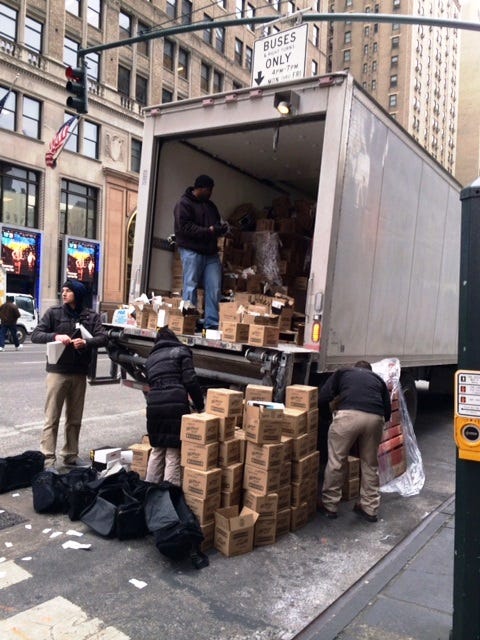#15: Social Preparedness
Most preparedness conversations amount to a shopping list.
So many barrels of wheat, so many rounds of 5.56x45, so many AA batteries. A certain type of autiste enjoys that; they like to argue about brands or calibers or storage methods, and savor the checking and rechecking of inventories. But what I’ve learned from my own efforts to prepare is that you really can’t hoard everything you need anyway.
If you move to some rural acreage and try to learn to grow your own food, generate your own power, etc., you’re not going to detach from the supply chain — you’re just switching to a different (and often more delicate) set of inputs. You’re going to make regular trips to some store “in town” that is supplied from China or Malaysia or Honduras.
That doesn’t mean the situation is hopeless in the event of political or economic turmoil. As our friend Brice notes, extended disorders in Africa, Latin America, and the Balkans didn’t cut off the flow of trade — they just changed the channels that it passed through. You couldn’t pull laundry soap or diapers off the shelf at the store anymore, but you could still find them if you knew a guy.
If you couldn’t get antibiotics or tampons at CVS anymore, where would you look? If a shipment of cattle feed was about to come in short and fly off the shelf at your local farm store, could you make a friend who might tip you off, or even let you reserve a few bags? That’s the “doomsday scenario” that we’re most likely to see: not the multitrillion-dollar flow of international trade turning off at once like a spigot, but cascading shortages, brownouts, delays.
In that situation, the stuff you need will still be around — it’s just going to be in fewer hands, rerouted through informal channels.
So this week in our EXIT group call, we talked about social preparedness.
In Concrete Jungle, Clay Martin discusses the importance of setting up an “Operational Detachment Alpha” or “A-Team” — a group just large enough to cover essential skills and resources, but small enough to be tight and trusted. If you’re a SOF veteran, this is a more-or-less straightforward process — you already know the guys with the skills you need, and you already have the skills to make yourself useful.
But what if you’ve never snapped a neck, and you’re not a farmer or a doctor or a mechanic? Obviously you should learn how to handle a gun, set a bone, change a tire, etc. Everybody in an ODA has to be a generalist, so they can fill in (or at least assist without getting in the way), but the goal should be to make yourself indispensable — and if you’re not a “hard-skills” guy, you can be the guy who knows people.
How does meat, milk, and produce get to your local Walmart, and who runs the warehouse? Where does the gasoline and diesel at your local gas station come from? “Casually” getting to know your local pharmacist might be a tricky proposition, but if you can make that happen organically it’s a powerful connection.
Rethink your “homestead”.
If you’re like me, and you’ve got a day job that keeps you pretty busy, you’re not realistically going to grow enough calories in your backyard to make you self-sufficient, even without supply disruptions.
And anyway, this mindset of total economic withdrawal misses a huge opportunity to build relationships that you’ll need in a crisis — and, as Martin notes, if you’re a wealthy out-of-towner, this kind of attitude can breed active hostility from your neighbors.
So don’t look at your “hobby farm” projects as a path to independence. Instead, they’re almost the opposite, a reason to integrate with your community.
If you’re raising chickens and growing potatoes, you have to show your face at the feed store, the livestock auction, the nursery. You have a great excuse to latch on to local experts, pay them money, and ask them lots of questions. Maybe this leads to some valuable skill transfer, but the relationship is the point.
On the EXIT call, we committed to establish one valuable connection this week.
I’m going to stop by the feed store this week, in the middle of the day when business is slow, and just casually ask for referrals. (Who’s the best veterinarian around here? Who could build me a fence for a goat paddock? Do you know anybody selling piglets?)
One of the EXIT guys suggested buying a scratch-off ticket next time you’re at the gas station: a good excuse to take your time at the counter and strike up a conversation. I’ll have to ask the attendant to hold my hand like a child as I take my first steps into the world of Games of Chance — which will be pretty funny, and hopefully I will be charming and make a new friend.
We have these types of conversations every week, and I always learn something. We have experts in homesteading, self-defense, crypto, entrepreneurship, software development. If you’re ready to assemble your own A-team, there is no better place to start than EXIT. Check us out at exitgroup.us.




Any San Diegeans out there?